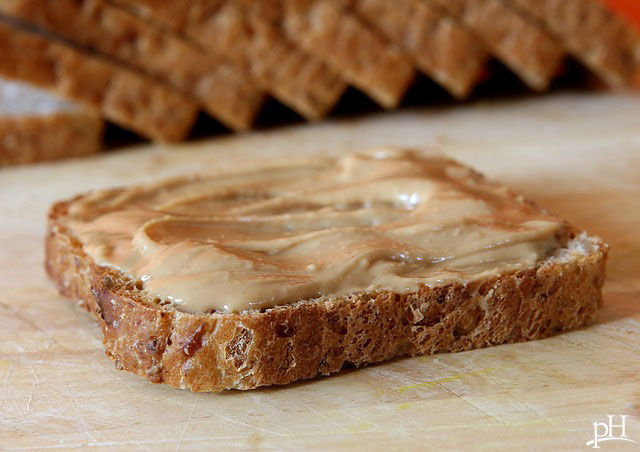Worried about when to introduce your baby to peanuts? New guidelines say earlier may be better!
9 years ago | Nutrition
By pH health care professionals
DID YOU GET THAT? YOU MIGHT BE ABLE TO STOP PEANUT ALLERGIES BEFORE THEY BEGIN.
It all started when scientists noticed a difference between Israeli children in Israel compared to Israeli children in Britain, with the former being introduced to peanuts earlier in life and having lower rates of peanut allergies than their counterparts. So, could introducing babies to peanuts earlier in life actually be more protective than withholding them?
First, let’s explore what makes a baby high risk for developing a peanut allergy?
Babies with severe eczema and/or an egg allergy are at the highest risk for developing an allergy to peanuts. Babies with mild-to-moderate eczema are also at risk, and babies with no eczema or food allergies are at the lowest risk for developing a peanut allergy.
Now, let’s find out what researchers discovered when they tested whether introducing peanuts early on in life can help lower rates of peanut allergies. In the Learning Early About Peanut Allergy (LEAP) study, out of 640 infants at high risk for developing peanut allergies, they found that the high-risk babies who consumed peanuts were 81 percent less likely to develop a peanut allergy by age 5. The results were published in the New England Journal of Medicine.
This prompted the National Institute of Allergy and Infectious Diseases (NIAID) to issue new guidelines for when babies at risk for peanut allergies should be introduced to the nut. Anthony S. Fauci, NIAID director, says thousands of children may be saved from peanut allergies going forward!
This is a 180 from the American Academy of Pediatrics guidelines from 2000, urging parents to avoid peanuts until a child at risk for allergies is 3 years old. The thought was that introducing an at-risk child to peanuts too early might risk severe allergic reactions.
When should babies be introduced to peanuts?
It is recommended that the highest risk babies possibly be evaluated by blood test, skin prick test or oral food challenge, according to the new guidelines, and based on the results, introduce peanut-containing foods at 4-6 months of age. Your doctor may even suggest the first introduction to peanuts take place in the doctor’s office as a precaution if there are concerns about the potential for life-threatening reactions.
Moderate-risk babies should try peanut foods at around 6 months, the guidelines suggest, and low-risk babies should try peanut foods at an appropriate age that aligns with the family’s preferences and culture.
What if you don’t know if your baby is high risk or not? In this case, it’s best to be proactive.
How to be proactive
Talk to your pediatrician about a safe strategy for introducing your baby to peanuts, as each child and situation is unique! Pregnant? You may also like this blog.
Are you or your kids too old for this to help? Read this blog to find out how current peanut allergy sufferers might have relief on the horizon too..
Enjoy Your Healthy Life!
The pH professional health care team includes recognized experts from a variety of health care and related disciplines, including physicians, health care attorneys, nutritionists, nurses and certified fitness instructors. To learn more about the pH Health Care Team, click here.







